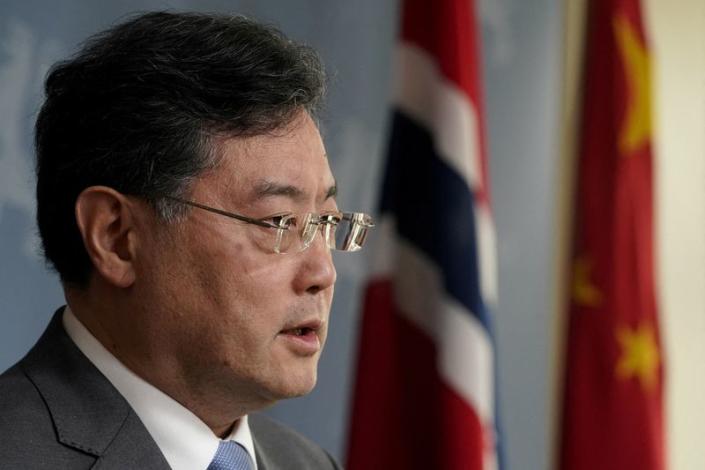China’s Foreign Minister Qin Gang will not be attending a diplomatic gathering in Indonesia this week, according to sources familiar with the matter. Qin’s absence, which has lasted for over two weeks, remains unexplained. Instead, top diplomat Wang Yi will represent China at the meetings in Jakarta. The Association of Southeast Asian Nations (ASEAN) and China are scheduled to hold meetings on Thursday, followed by the East Asia Summit and ASEAN Regional Forum on Friday. Qin, who took over as foreign minister in December, was last seen in public on June 25 in Beijing. The Chinese foreign ministry has not responded to inquiries about his whereabouts.
Qin’s absence has raised speculation, with a U.S. political news website suggesting that health issues may be the cause. However, when asked about the report, Chinese Foreign Ministry spokesperson Wang Wenbin said he had not heard about it. Qin was also supposed to meet with European Union foreign policy chief Josep Borrell last week in Beijing, but the meeting was postponed after China informed the EU that the dates were no longer possible.
The absence of Qin comes at a time when U.S. Secretary of State Antony Blinken is set to attend the meetings in Jakarta, providing an opportunity for talks with China as the two countries seek to improve their relations. Blinken had previously met with Qin and Wang Yi in Beijing last month, marking the first visit to China by a U.S. secretary of state in five years.
Wang Yi, who serves as the foreign policy chief for the Chinese Communist Party, ranks above Qin as the government’s foreign policy chief. The reasons behind Qin’s absence and the implications for China’s foreign relations remain unclear.
Reporting by Yew Lun Tian in Beijing, Karen Lema in Manila, and Stanley Widianto in Jakarta; Writing by Martin Petty and John Geddie; Editing by Robert Birsel.

What are the potential reasons for China’s Foreign Minister Qin Gang’s unexplained absence and how might it impact China’s foreign relations?
China’s Foreign Minister Qin Gang will not be attending a diplomatic gathering in Indonesia this week, and his unexplained absence for over two weeks has raised speculation. Instead, top diplomat Wang Yi will represent China at the meetings in Jakarta. The Association of Southeast Asian Nations (ASEAN) and China are scheduled to hold meetings on Thursday, followed by the East Asia Summit and ASEAN Regional Forum on Friday. Qin, who became foreign minister in December, was last seen in public on June 25 in Beijing. The Chinese foreign ministry has not provided any information about his whereabouts.
There have been suggestions that Qin’s absence may be due to health issues, but the Chinese Foreign Ministry spokesperson, Wang Wenbin, claimed not to have heard about it when asked. Qin was also supposed to meet with European Union foreign policy chief Josep Borrell last week in Beijing, but the meeting was postponed after China informed the EU that the dates were no longer possible.
The timing of Qin’s absence is notable since U.S. Secretary of State Antony Blinken is set to attend the meetings in Jakarta. This presents an opportunity for talks between the U.S. and China as both countries seek to improve their relations. Blinken had previously met with Qin and Wang Yi in Beijing last month, marking the first visit to China by a U.S. secretary of state in five years.
Wang Yi, who holds the position of foreign policy chief for the Chinese Communist Party, ranks higher than Qin as the government’s foreign policy chief. The reasons for Qin’s absence and the impact it may have on China’s foreign relations remain uncertain.



It’s surprising and concerning to see China’s Foreign Minister Qin Gang absent from a crucial diplomatic gathering in Indonesia. His absence raises questions about China’s commitment to regional engagement and cooperation.
It is concerning that China’s Foreign Minister Qin Gang was absent from the recent diplomatic gathering in Indonesia. Given the current complex and ever-evolving global geopolitical landscape, it is crucial for all countries, especially major global powers like China, to actively participate in international forums. This absence raises questions and highlights the need for transparency in China’s foreign policy approach.